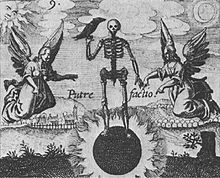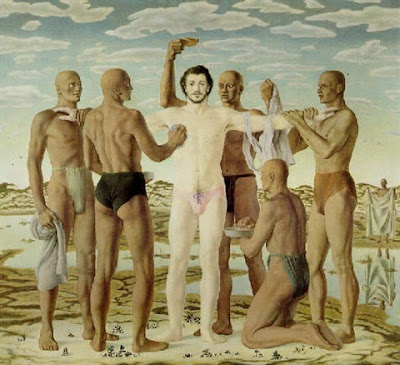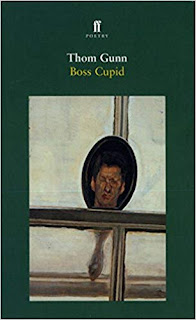Black Sunlight: Speculation.
In the world of criticism, there is a type of critic that bears a love-hate relationship to their chosen area of specialism. Pound criticism is fraught with such critics, people who are tantalised by what they read, but frustrated that the act of reading will not yield what they seek to find, even when they do their best to find perverse meanings amidst obscurity. In his poem “Christmas 1983”, Marechera jokes about the security officers sitting beside him at the bar:
…the man on my right
And the man on my left
Are both listening to what I have not said
Which their itching handcuffs would have me say…
Such a comment could just as well be a comment against the shackles of literary criticism in the hands of critics who want to find evidence of what they want to hear and manage to detect intentions in the slightest authorial cough. David Pattison has such a relationship with Marechera.
In his essay “The search for the Primordial I”, Pattison suggests that Black Sunlight is a product of schizophrenia, of many voices originating from a personality disorder. It is his view that Marechera has a hermetical view of identity. Marechera, in his view, does not seek an identity that rests upon self-awareness (as with Carl Rogers). Nor does he seek an identity based on individuation (as with Carl Jung). He quests for a self that is unattached and prior to any meeting with the Other, a sort of paradisal Adam-like self before Eve, or satanic Colonialism. In this state, identity has not been encoded, and like a child in the first stages of reading, the self is rapt in decoding its self-centred world.
I am not sure that what Pattison suggests really exists…though he attributes this lack of existence to a failing on Marachera’s part—a lack of literary control and order. Negative existentialism such as Jasper's postulates something like Pattison’s idea of self. It is a self that is the quintessential outsider, a self which at its best can alienate its alienation and can exist neither here nor there. But it is hardly an ideal, a return to the primordial integration. Beckett would term this the Belacqua fantasy, an exile that is an exile from the social self, a withdrawal that brings a loss of energy and total disconnection. The primordial self does appear in positive existentialism, in the hands of Buber, who sees a different world. In his view, the self is enriched by the original I-Thou and whole communion. But the I-Thou (unlike the I-It) exists only in relation to the Other.
If Pattison’s idea has any source, it would be in quasi-science, in alchemy, not a source he would want to readily acknowledge.
In alchemy, there is a stage of return, a growing back into the womb, usually figured as an old Saturnian man receding backwards towards Mercurial youth. This return is a return to the androgyne, to revolution (rather than evolution), to a point of infancy that transcends gender. Essentially, it is a concordia discors, a unity that contains all the seeds of discord. Throughout Black Sunlight, there are curious echoes, almost parodies of hermetical states. So, the brother-sister incest in the novel translates the transgressive relationship of Soror and Frater in alchemy. And Blanche Goodfellow’s deflowering, in which the seed of a whole tribe is poured into her (or not, since she persuades the community to use condoms!) stands as a sublime joke about the seeds of discord within unity, the many in the one, the white rose of alchemy. Rather than show schizophrenia—Marechera’s many disturbed voices are no less disturbing than Beckett’s (and he has had no such medical claims levelled at his writing)—Black Sunlight reveals a transgressive narrative that is about how a text disseminates meaning and identity is a revolutionary state beyond social order and within the individual. The writer who is an insider must be an outsider and vice versa.
In alchemy, there is a stage of return, a growing back into the womb, usually figured as an old Saturnian man receding backwards towards Mercurial youth. This return is a return to the androgyne, to revolution (rather than evolution), to a point of infancy that transcends gender. Essentially, it is a concordia discors, a unity that contains all the seeds of discord. Throughout Black Sunlight, there are curious echoes, almost parodies of hermetical states. So, the brother-sister incest in the novel translates the transgressive relationship of Soror and Frater in alchemy. And Blanche Goodfellow’s deflowering, in which the seed of a whole tribe is poured into her (or not, since she persuades the community to use condoms!) stands as a sublime joke about the seeds of discord within unity, the many in the one, the white rose of alchemy. Rather than show schizophrenia—Marechera’s many disturbed voices are no less disturbing than Beckett’s (and he has had no such medical claims levelled at his writing)—Black Sunlight reveals a transgressive narrative that is about how a text disseminates meaning and identity is a revolutionary state beyond social order and within the individual. The writer who is an insider must be an outsider and vice versa.




Comments